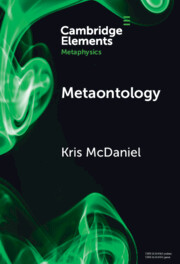Refine search
Actions for selected content:
2 results

Metaontology
-
- Published online:
- 06 June 2025
- Print publication:
- 03 July 2025
-
- Element
- Export citation
16 - Weak Quantifier Variance, Knowledge by Stipulative Definition and Access Worries
- from Part III
-
- Book:
- A Logical Foundation for Potentialist Set Theory
- Published online:
- 10 February 2022
- Print publication:
- 17 February 2022, pp 167-182
-
- Chapter
- Export citation
